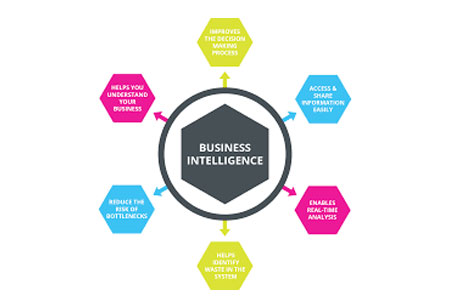THANK YOU FOR SUBSCRIBING
Significance of Location Analytics and Business Intelligence in Today's World
With the advancing innovations, location technology is becoming the key differentiator to businesses to enhance customer experience, drive revenue and increase operational efficiency.

By
Apac CIOOutlook | Wednesday, January 09, 2019
Stay ahead of the industry with exclusive feature stories on the top companies, expert insights and the latest news delivered straight to your inbox. Subscribe today.
The amalgamation of location analytics and business intelligence is the perfect key to enhance the growth of any business. With mobile devices gaining prominence and is becoming ubiquitous, the amount of location data that generates is enormous. This information further helps the marketers to identify audiences, learn competitive insights and observe consumer behavior.
With the advancing innovations, location technology is becoming the key differentiator to businesses to enhance customer experience, drive revenue and increase operational efficiency.
Is Data Intelligence Enhancing Business Performance
Location Intelligence is capable of combining business data with spatial data and run complex analytics to offer location-enabled business intelligence. It is used to derive meaningful insights, discover relationships and identify trends.
Check Out: Business Management Review Magazine
Innovations like the Internet of Things (IoT), autonomous vehicles and sensors are gathering information that was never thought before, creating entirely new adventures for geospatial data collection. Therefore, location-based analytics and platforms that can process and detect trends and provide intelligence are gaining prominence.
According to a Gartner, by 2020 there will be 20.4 billion connected things in use, up from 8.4 billion in 2017. This huge jump can be attributed to the growing use of smart connected devices. IoT has already created much hype in recent times and will lead to massive data regarding the whereabouts of an individual. Collecting and analyzing this data can be intimidating as it involves new methodologies, talent, and technology.
Leading to more informed decisions
Location-based services provide a layer of information that one didn’t have in the past. But with the introduction of new technologies, organizations can take more informed decisions as in where to invest their innovations. For instance, the understanding of traffic patterns might provide insights about where to place the sensors within a smart city. Comprehending this and then adding a layer of intelligence about where there will be a significant impact could help to protect that investment and also increase the rate of adoption.
The implications of location technology are endless, and Big data is just acting as a platform from which there is a beginning to the possible innovations of the future. Many global giants have enabled these services to pamper their customers.





